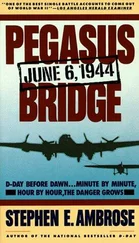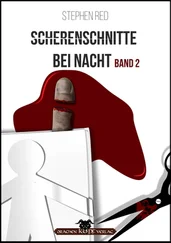Stephen Ambrose - Band of Brothers
Здесь есть возможность читать онлайн «Stephen Ambrose - Band of Brothers» весь текст электронной книги совершенно бесплатно (целиком полную версию без сокращений). В некоторых случаях можно слушать аудио, скачать через торрент в формате fb2 и присутствует краткое содержание. Жанр: История, на английском языке. Описание произведения, (предисловие) а так же отзывы посетителей доступны на портале библиотеки ЛибКат.
- Название:Band of Brothers
- Автор:
- Жанр:
- Год:неизвестен
- ISBN:нет данных
- Рейтинг книги:4 / 5. Голосов: 1
-
Избранное:Добавить в избранное
- Отзывы:
-
Ваша оценка:
- 80
- 1
- 2
- 3
- 4
- 5
Band of Brothers: краткое содержание, описание и аннотация
Предлагаем к чтению аннотацию, описание, краткое содержание или предисловие (зависит от того, что написал сам автор книги «Band of Brothers»). Если вы не нашли необходимую информацию о книге — напишите в комментариях, мы постараемся отыскать её.
Band of Brothers — читать онлайн бесплатно полную книгу (весь текст) целиком
Ниже представлен текст книги, разбитый по страницам. Система сохранения места последней прочитанной страницы, позволяет с удобством читать онлайн бесплатно книгу «Band of Brothers», без необходимости каждый раз заново искать на чём Вы остановились. Поставьте закладку, и сможете в любой момент перейти на страницу, на которой закончили чтение.
Интервал:
Закладка:
It was his jumping around, his "Hi-ho, Silver!" nonsense, his bull-in-the-china-shop approach to tactical problems, that bothered the officers, N.C.O.s, and enlisted men of the company more than his chickenshit. Dissatisfaction grew daily, especially with the N.C.O.s. Sgts. Myron "Mike" Ranney, a twenty-one-year-old from North Dakota, of 1st platoon, and "Salty" Harris of 3rd platoon, led the mumble-mumble of the potential disaster of Sobel leading the company into combat. The N.C.O.s were fully aware that they were confronted by a delicate and extremely dangerous situation. To act would open them to charges of insubordination or mutiny in time of war,- to fail to act could get the whole company killed.
Ranney, Harris, and the other N.C.O.s hoped that the platoon leaders would bring the problem to Colonel Sink, or that Sink would become aware of the situation on his own and that Sink would then quietly remove Sobel. But that seemed naive. How could young officers whose responsibility was to back up their C.O. go to the colonel to complain about the C.O.? And what would they complain about? Company E continued to lead the way in the regiment, in the field, in barracks, in athletic contests. How could the N.C.O.s expect Colonel Sink to do other than support his company commander in the face of dissension and pressure from a group of sergeants and corporals? These guys were getting ready to go into combat against the most-feared army in the world, not to play a game or have a debate.
So the mumble-mumble continued, and Sobel and 1st Sergeant Evans remained isolated, but still very much in command.
Weekend passes and the excellent British rail service gave the men a break from the tension. England in the late fall and early winter of 1943 was a wonderland for the boys from the States. Most of the British boys their age were off in Italy or in training camps far from their homes, so there were lonely, bored, unattached young women everywhere. The American soldiers were well-paid, much better than the British, and the paratroopers had that extra $50 per month. Beer was cheap and plentiful, once out of Aldbourne all restraints were removed, they were getting ready to kill or be killed, they were for the most part twenty or twenty-one years old.
Webster described the result in an October 23 diary entry: "Although I do not enjoy the army, most of the men in this outfit find it a vacation. Boys who had been working steadily at home enter the army and are relieved of all responsibilities. It is unanimously agreed that they never pitched such glorious drunks back home."
The excitement of the time, the kaleidoscope of impressions that were continually thrust upon them, the desperate need to escape the rigors of training, the thought of upcoming combat and Sobel's chickenshit, combined to make this an unforgettable time and impel most of the men to make the most of it. "London to me was a magic carpet," Carson wrote. "Walk down any of its streets and every uniform of the Free World was to be seen. Their youth and vigor vibrated in every park and pub. To Piccadilly, Hyde Park, Leicester Square, Trafalgar Square, Victoria they came. The uniform of the Canadians, South Africans, Australians, New Zealanders, the Free French, Polish, Belgium, Holland, and of course the English and Americans were everywhere.
"Those days were not lost on me because even at twenty years of age, I knew I was seeing and being a part of something that was never to be again. Wartime London was its own world."
There was an excess of drinking, whoring, fighting. Older British observers complained, "The trouble with you Yanks is that you are overpaid, oversexed, and over here." (To which the Yanks would reply, "The trouble with you Limeys is that you are underpaid, undersexed, and under Eisenhower.")
E Company was adding officers, with the aim of having two lieutenants per platoon, in expectation of casualties when combat began. One newcomer was 2nd Lt. Lynn "Buck" Compton. Born on the last day of 1921 in Los Angeles, he was an all-American catcher on the UCLA baseball team and played football for UCLA in the January 1, 1943, Rose Bowl game. Upon graduation from OCS he went to Fort Benning. After completing jump school, he joined E Company in Aldbourne in December. "I remember feeling rather envious of those who had been at Toccoa," he wrote years later, "and felt sort of 'out of it' as a new member of the company."
Compton quickly learned that Lieutenant Nixon, now battalion S-2, resented "jocks." Nixon put Compton in charge of physical training for the battalion, which in practice meant Compton had to lead the battalion on long runs, the only officer who had to do so. Whether as a result of this experience, or because of his athletic background, or because he liked to gamble, Compton was close to the N.C.O.s and some of the enlisted men. Too close, some of the other officers felt. He got caught playing craps with some of the men and drew a reprimand from the X.O., Lieutenant Winters.
At 1100 hours on October 30, Lieutenant Colonel Strayer was scheduled to inspect E Company. Sobel gave Lieutenant Winters orders to inspect the latrine at 1000 hours. A few minutes later, at about 0930 hours, Lieutenant Colonel Strayer told Winters to censor the enlisted men's mail. That was a job that could not be done at headquarters, so Winters hopped on his bicycle and rode to his quarters, a small room in a private home in Aldbourne. Promptly at 1000 hours he returned, parked his bicycle outside the barracks, and entered to inspect the latrine. To his surprise, Sobel was there, making his own inspection.
Sobel walked past Winters, head down, giving no indication that he saw the X.O. Behind him walked a most unhappy Pvt. Joachim Melo, carrying a mop, soaking wet, dirty, badly needing a shave, hair uncombed. Sobel left without saying a word. Winters inspected the latrine and found that Melo had done a good job.
At 1045 hours Winters walked into the orderly room to get ready for the company formation. With a hint of a smirk on his face, 1st Sergeant Evans handed him a typed document. It read:
Company E, 506th PIR, 30 Oct. '43
Subject: Punishment under 104th Article of War
To: 1st Lt. R. D. Winters
1. You will indicate by indorsement [sic] below whether you desire punishment under 104th AW or trial by Courts Martial for failure to inspect the latrine at 0945 this date as instructed by me.
[Signed, with a grand flourish] Herbert M. Sobel, Capt., Commanding.
Winters confronted Sobel. "Captain," he said after saluting and asking permission to speak, "my orders were to inspect the latrine at 1000 hours."
"I changed that time to 0945."
"No one told me."
"I telephoned, and I sent a runner." Winters bit his tongue. There was no telephone in his room, and no runner had come.
It was time for inspection. Strayer went down the ranks and through the barracks. Everything, including the latrine, was satisfactory. Winters, meanwhile, made up his mind on how to respond to Sobel. On the bottom of the typed sheet, he wrote by hand:
Subject: Punishment under 104 A.W. or Trial by Courts Martial.
To: Capt. H. M. Sobel
1. I request trial by Courts Martial for failure to inspect the latrine at 0945 this date.
Lt. R. D. Winters, XO, Co. E
Sobel replied the following day:
1. You will be denied a 48 hour pass until after December 15, 1943.
2. In accordance with the procedure outlined in the Courts-Martial Manual you will iniutate [initiate; Sergeant Evans evidently had trouble either typing or spelling] your own letter of appeal with your reasons for objection and also a request for trial by courts-martial.
Winters simmered for three days. So far as he could make out, Sobel was saying, "Look, don't be silly, take the punishment and forget the courts-martial." Sobel knew that the "punishment" was a matter of indifference to Winters, as Winters spent his weekends on the post, reading or playing sports. But Winters had had enough. He wanted to force the moment to a crisis. The competition he had never wanted, between himself and Sobel for leadership of E Company, had to be settled. The company was not big enough for both of them.
Читать дальшеИнтервал:
Закладка:
Похожие книги на «Band of Brothers»
Представляем Вашему вниманию похожие книги на «Band of Brothers» списком для выбора. Мы отобрали схожую по названию и смыслу литературу в надежде предоставить читателям больше вариантов отыскать новые, интересные, ещё непрочитанные произведения.
Обсуждение, отзывы о книге «Band of Brothers» и просто собственные мнения читателей. Оставьте ваши комментарии, напишите, что Вы думаете о произведении, его смысле или главных героях. Укажите что конкретно понравилось, а что нет, и почему Вы так считаете.



![Stephen Ambrose - Citizen Soldiers [Condensed]](/books/346737/stephen-ambrose-citizen-soldiers-condensed-thumb.webp)
![Stephan Orth - Behind Putin's Curtain - Friendships and Misadventures Inside Russia [aka Couchsurfing in Russia]](/books/415210/stephan-orth-behind-putin-s-curtain-friendships-a-thumb.webp)





